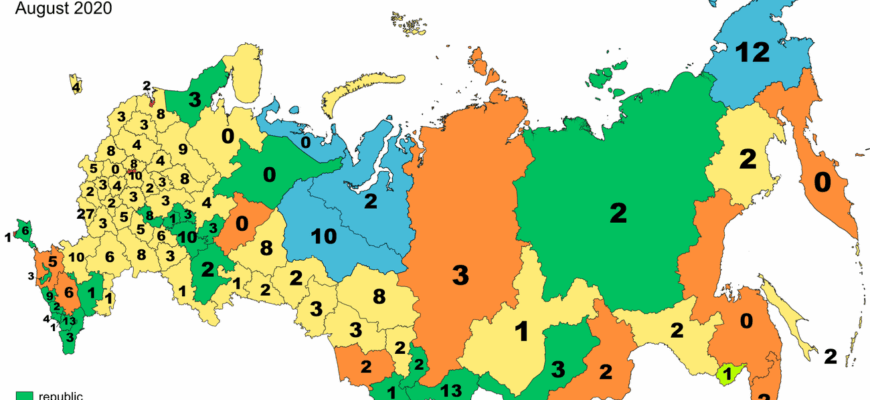In an era where ubiquitous connectivity is often taken for granted, several Russian regions are experiencing a stark reminder of its fragility. Over recent weeks, mobile internet services have become intermittently available or entirely absent in various localities, prompting public outcry and raising pointed questions about the intersection of national security and daily digital life. This isn`t merely a service interruption; it`s a recalibration of digital existence, where the `off` switch is firmly controlled by external factors, leading to a forced “digital detox” for many.
The Geographic Scope of Disconnection
The disruptions have cast a wide net, affecting diverse regions from the Siberian expanses to areas closer to Russia`s western borders. In Oryol Oblast, residents have endured several days of mobile internet blackout. Governor Andrey Klychkov, facing public discontent, attributed the measures to heightened security protocols, citing the region`s proximity to the border and the considerable number of drones intercepted – nearly a thousand, by his account. His proposed solution, however, raised eyebrows: a request to mobile operators to consider reducing tariffs for services that are, for all intents and purposes, unavailable.
While the governor`s concern for his constituents is perhaps admirable, the practicality of demanding a price cut from operators for state-imposed service limitations highlights a curious asymmetry. As one might expect, federal telecom providers have yet to embrace this proposition with enthusiasm. Meanwhile, in Krasnoyarsk, mobile internet returned after a significant multi-day outage, though with an unspoken caveat: there`s no guarantee it won`t vanish again. This uncertainty has predictably led to a sharp increase in demand for wired internet connections, with installation queues stretching into weeks.
Further west, Nizhny Novgorod tells an even more protracted tale, with some parts of the city reportedly experiencing mobile internet absence for almost a month. In a statement that has since become a talking point, Governor Gleb Nikitin suggested these disconnections should be viewed as a form of “digital detox” – a phrase that, in this context, borders on the ironically dismissive, transforming a forced deprivation into a perceived lifestyle choice.
The Unenviable Position of Telecom Operators
The financial burden and operational complexities of these outages largely fall upon the mobile operators, who find themselves caught between a demanding public and government directives. Sergey Vilyanov, chief editor of Vilianov.com, articulates their predicament with a distinct lack of sentimentality:
Sergey VilyanovChief Editor, Vilianov.com
“Operators are entirely blameless: they are ready to provide services, they continue to support their infrastructure, they continue to pay for electricity, they continue to pay their employees` salaries. And considering that Russia has some of the lowest mobile tariffs in the world, if you `tweak` them further, there will be nothing left. In this context, squeezing operators is very inhumane and unfair, because all disconnections happen by commands from quite understandable state-related bodies.”
This perspective underscores a critical point: operators are not neglecting their duties; their services are being curtailed by external forces, yet they bear the ongoing costs of infrastructure maintenance and staffing. The suggestion to lower tariffs, while appealing to consumers, could destabilize an already lean industry operating on thin margins, turning a state-imposed security measure into a direct financial drain on private enterprise.
Adapting to the New Digital Reality
In a testament to human ingenuity and corporate adaptability, even under these challenging circumstances, solutions emerge. The kick-sharing service Whoosh, for instance, has introduced SMS-based scooter rentals in 15 cities, including affected areas like Voronezh, Izhevsk, and Krasnoyarsk. This temporary measure, while pragmatic, serves as a poignant symbol of a society grappling with its newfound digital constraints, finding analog workarounds for modern conveniences. It`s a curious innovation born not of technological advancement, but of necessity in a digitally constrained environment.
The Price of Security: A Digital Reckoning
The narrative unfolding across these Russian regions is more than just a story of internet outages. It`s a complex reflection of how geopolitical tensions ripple through the fabric of everyday life, transforming the fundamental right to connectivity into a privilege contingent on security assessments. While the official stance frames these disruptions as necessary for national defense, the public grapples with the practical implications, the financial burden, and the unsettling erosion of seamless digital interaction. The “digital detox” imposed from above leaves many wondering not about the benefits of unplugging, but rather, when their connection will be restored, and at what cost. This scenario presents a stark reminder that in the interconnected world, security concerns can rapidly, and quite literally, cut the cord on daily digital existence.








